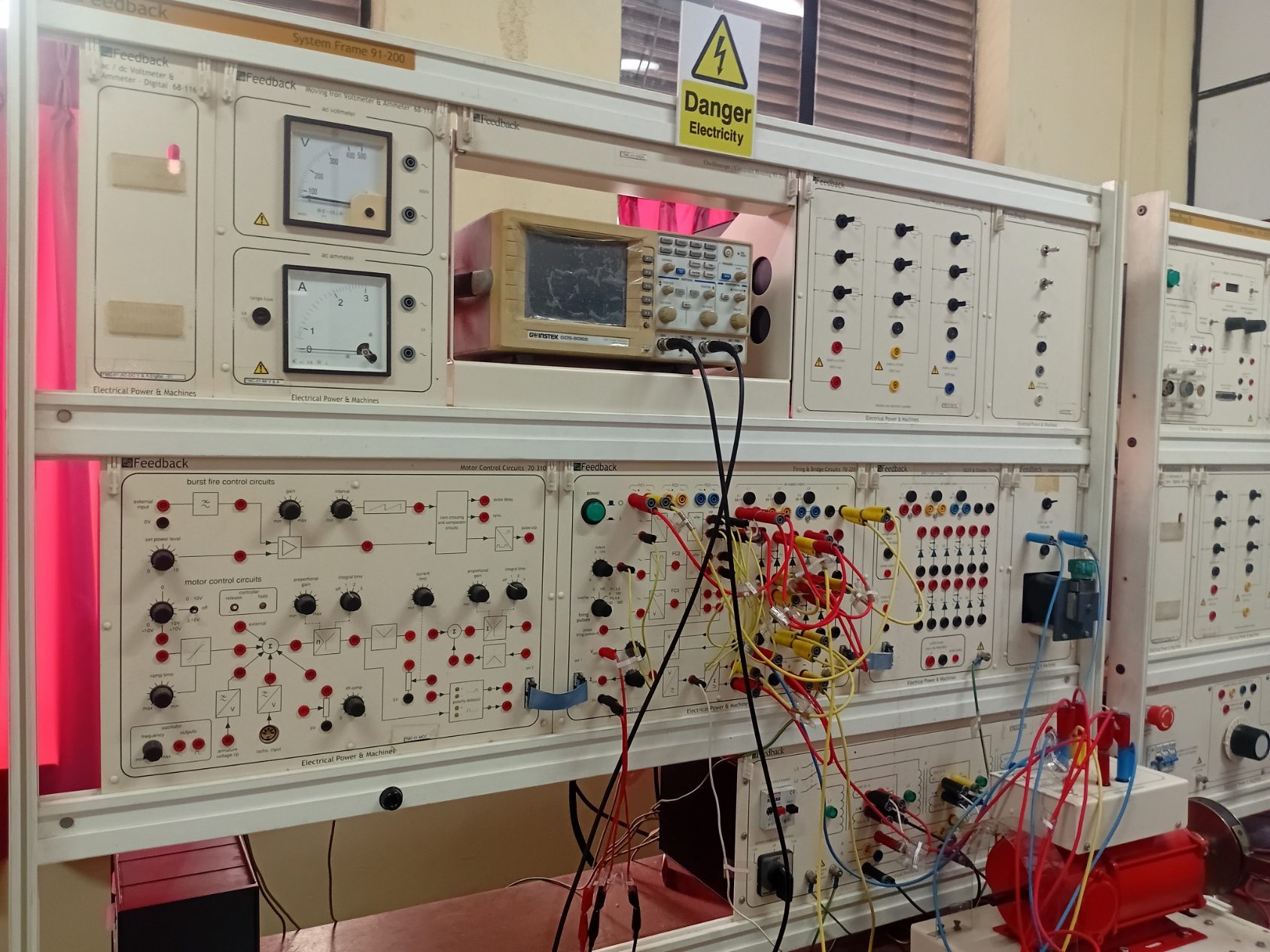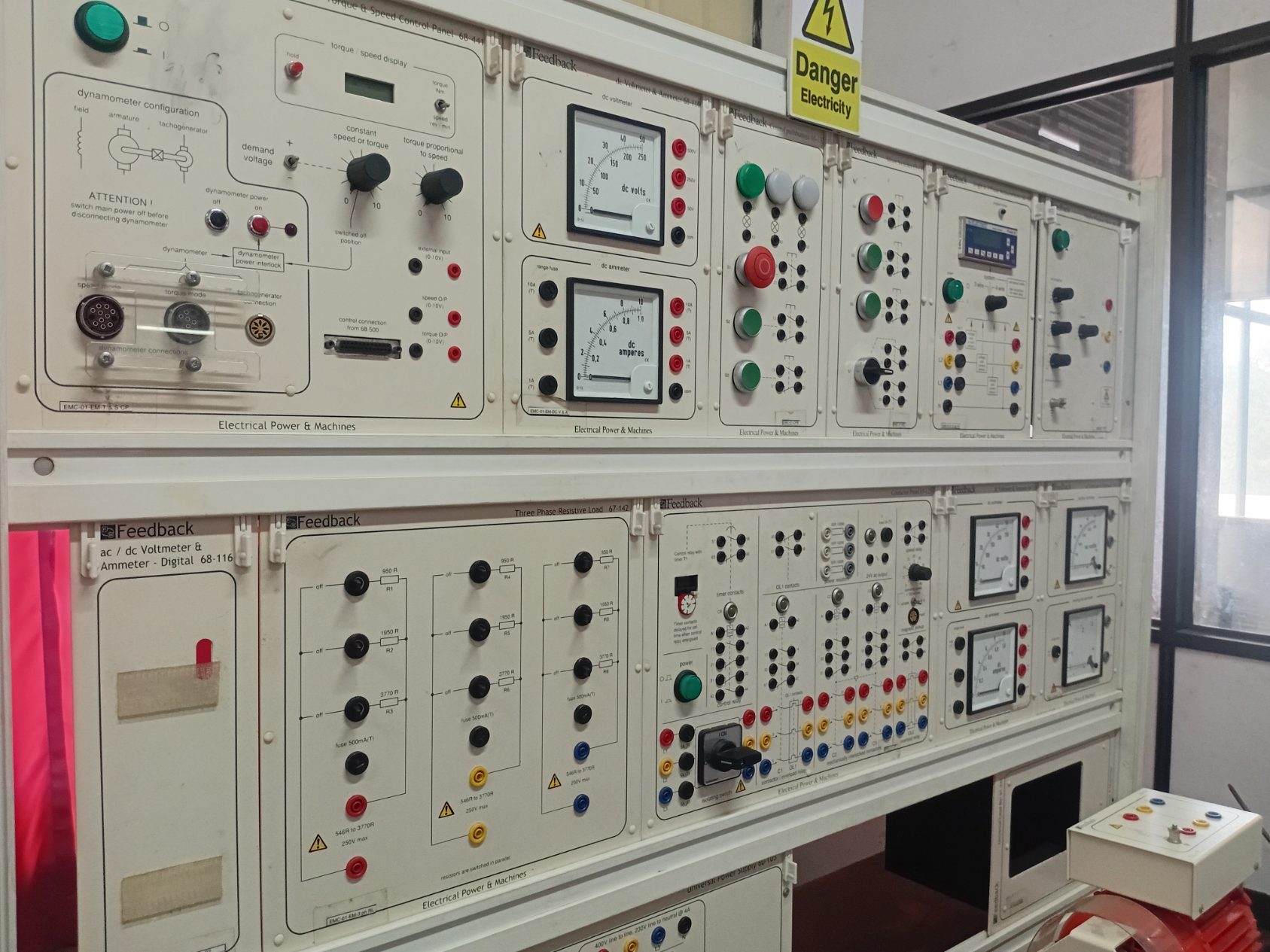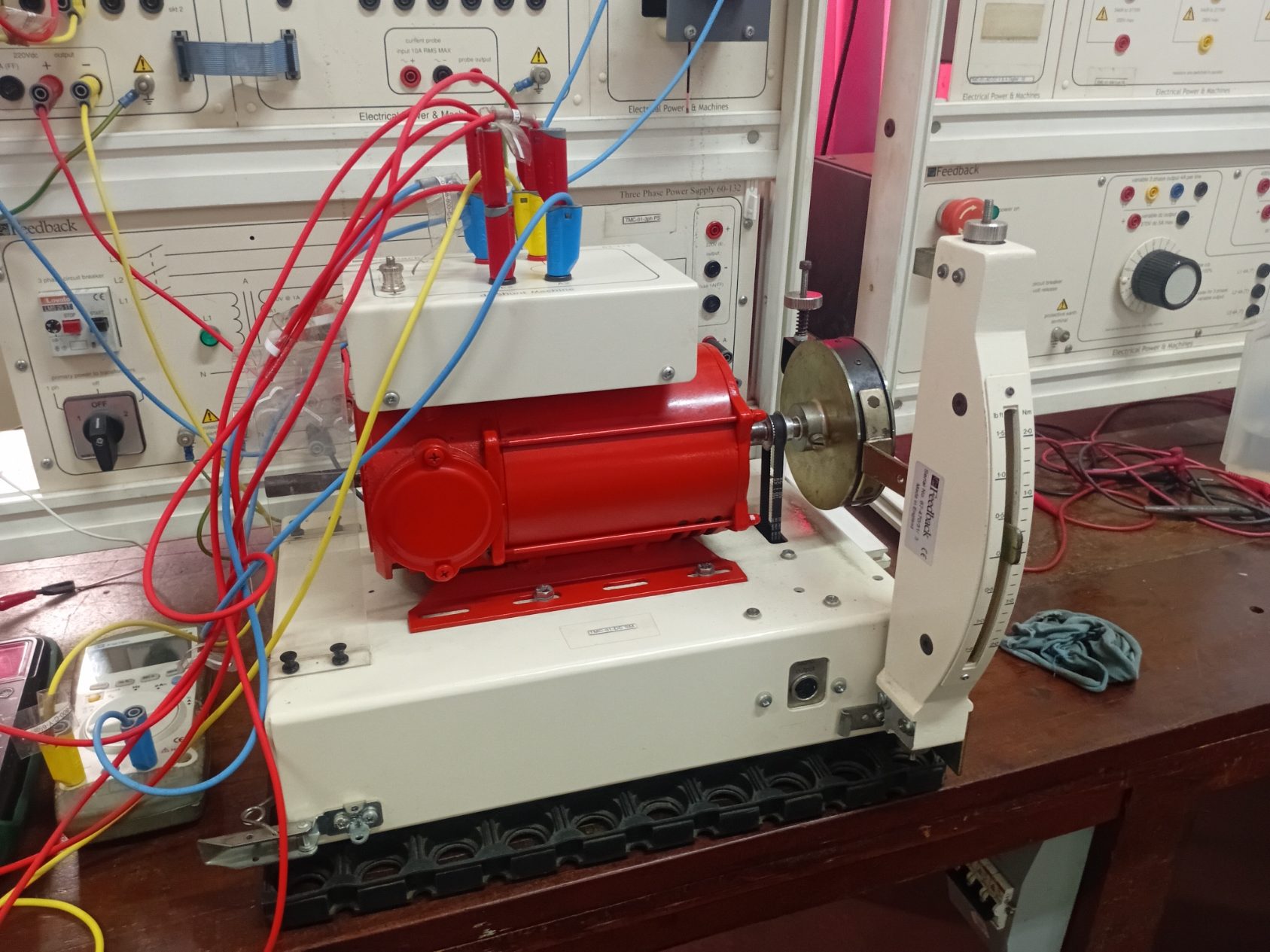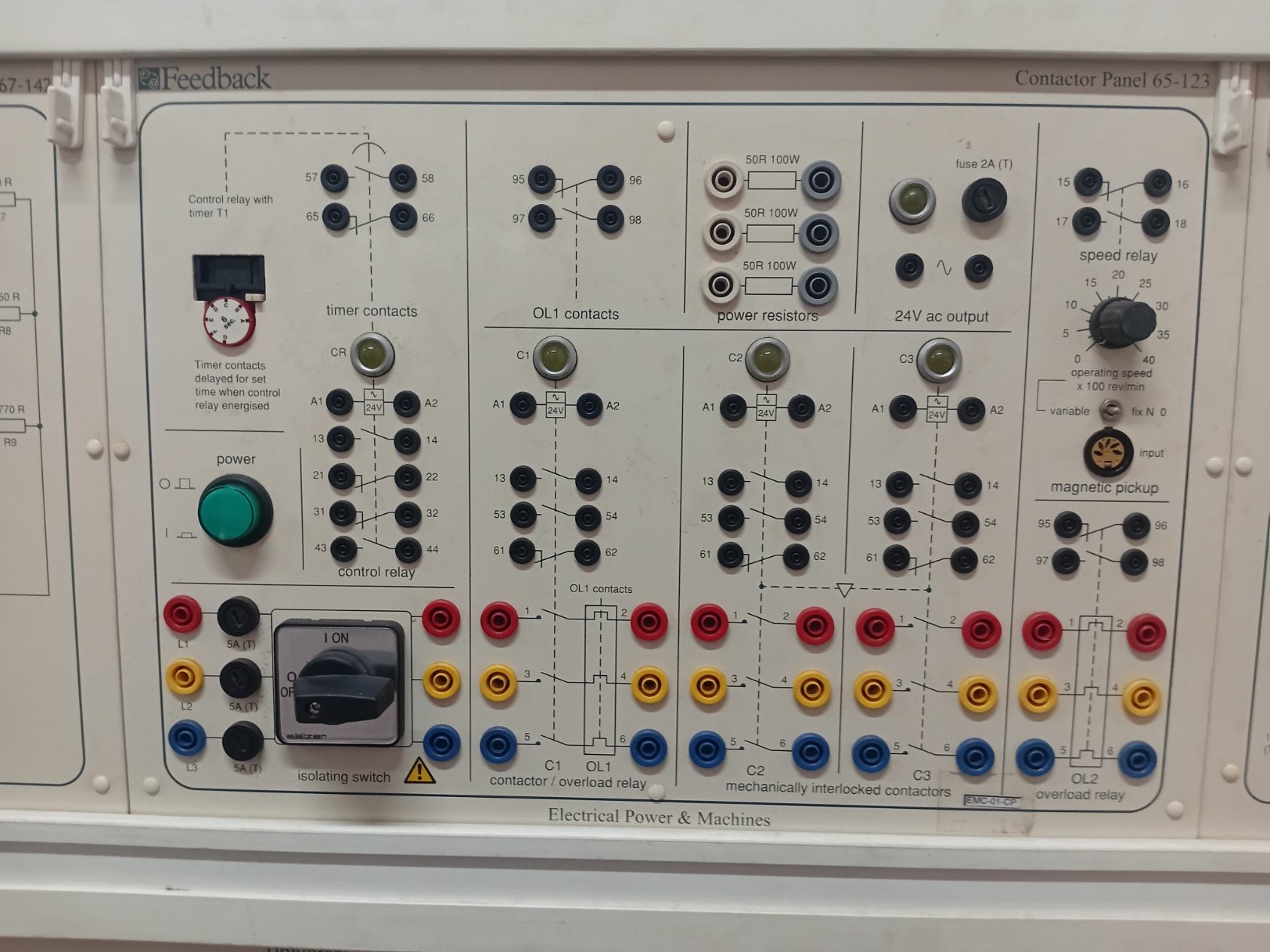You are here: OUSL / Faculty of Engineering Technology / Dept. of Mechanical Engineering
You are here: OUSL / Faculty of Engineering Technology / Dept. of Mechanical Engineering

The Power Electronics Laboratory provides students with practical experience in analyzing, designing, and testing power electronic circuits and systems. The lab focuses on understanding how electrical power is efficiently converted, controlled, and utilized in modern applications such as motor drives, renewable energy systems, and industrial automation.

Through hands-on experiments, students gain insights into the operation of semiconductor switching devices, converter topologies, and control techniques. The experiments are designed to reinforce theoretical concepts covered in lectures and to develop practical skills essential for working with power electronic systems.
The following experiments are conducted in the Power Electronics Laboratory:

